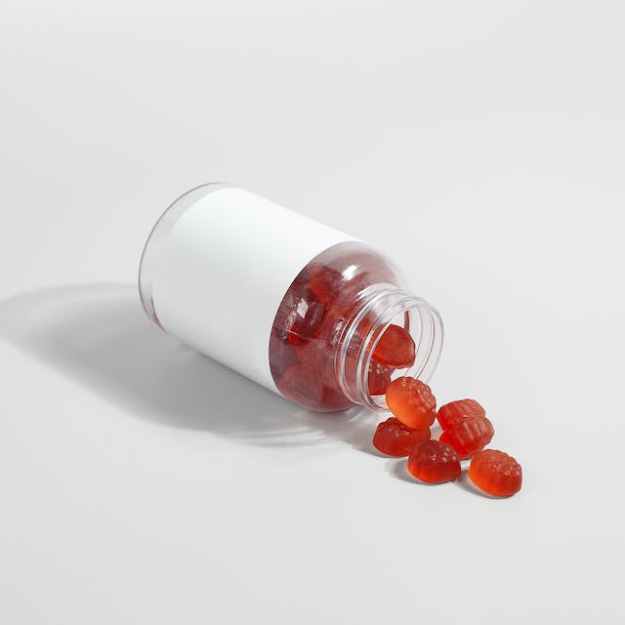
Magnesium is an essential nutrient responsible for dozens of important roles throughout our bodies. Did you know many Americans are deficient in one of the most essential minerals? Research suggests that nearly 50% of American adults are magnesium-deficient, most of whom might not even know it.
This important mineral is involved in nerve function, maintaining blood sugar levels, and supporting a healthy heartbeat. Magnesium also works alongside calcium to strengthen bones and is involved in maintaining a proper circadian rhythm, affecting your sleep quality.
Not getting enough magnesium in your diet can lead to a bunch of unpleasant symptoms, from leg cramps to headaches and even heart palpitations. That’s why many people have started taking magnesium glycinate, a form of magnesium that is easily absorbed by the body and can help create a calming feeling. Magnesium glycinate gummies have recently become a popular addition to vitamin routines, offering benefits from better sleep to improving anxiety. But how does this supplement work? We break it down below.

Magnesium glycinate benefits
Should you take magnesium glycine gummies? Check out a few of the most popular benefits of this supplement below.
Stress, anxiety, and depression
Those looking for a natural way to support their mental health have turned to magnesium glycinate, thanks to its promising effects. Magnesium glycinate is thought to affect the body’s stress response, blocking the stimulating neurotransmitters and binding to receptors responsible for calming. This “calming” effect can help promote a more relaxed state, improving anxiety symptoms and helping relax people before bed. For this reason, many people take their magnesium glycinate gummies at or before bedtime. Taking magnesium glycinate may also play a role in managing stress by regulating the release of cortisol levels, a hormone often elevated in people experiencing stress.
Better sleep
Due to its calming effects, it’s easy to see how this supplement could also help support people who have trouble falling asleep or staying asleep. Magnesium glycinate can help regulate your body’s gamma-aminobutyric acid (GABA) levels, an amino acid involved in quality sleep. As we get ready for sleep, this amino acid helps tell our brain to slow down and makes it easier to fall asleep. Research suggests that the ability of magnesium glycinate to slow the central nervous system could mean better sleep.
High blood pressure
A meta-analysis of several studies found that magnesium glycinate can even help lower blood pressure. Researchers found that supplementing with magnesium glycinate decreased diastolic blood pressure (DBP) in healthy adults. Maintaining regular blood pressure can help reduce your risk of developing coronary artery disease. However, it’s important to discuss taking any supplements that could affect your blood pressure with your doctor before starting.

Why choose magnesium glycinate gummies
Magnesium glycinate supplements come in several forms, such as liquid, capsules, and gummies. The gummy form is an excellent choice for people with difficulty swallowing pills or medical conditions that make swallowing difficult. Magnesium glycinate gummies are also a great option for those who have aversions to the taste and smell of certain capsule vitamins. If you struggle to stay encouraged to take vitamins regularly, magnesium glycinate gummies might be the best form of this supplement for you.

Magnesium glycinate vs. citrate
Magnesium glycinate is only one of 11 known types of magnesium. This form of magnesium is formed from the elemental form of magnesium combined with an amino acid known as glycate. You may get enough of this nutrient through a whole-food diet that contains lots of dairy products, whole grains, and meat products. However, many people fail to get enough magnesium from the diet alone.
Another commonly used form of magnesium is known as magnesium citrate. Magnesium citrate starts with magnesium and is formed with an organic salt. While this form of magnesium can help boost your body’s overall magnesium levels, it is often used for its laxative effect. Those who suffer from intestinal conditions that cause constipation, such as IBS, may find magnesium citrate to help support more regular bowel movements.
On the other hand, magnesium glycinate is a form of magnesium that is better suited for its mental health benefits, such as providing a sense of calmness and improving sleep quality. Unlike magnesium citrate, which can be tough on the stomach, magnesium glycinate is considered a gentler, more absorbable form that is best for people with sensitive stomachs.

Dosing magnesium glycinate
How many magnesium glycinate gummies to take will vary depending on the brand and dosage. The recommended daily allowance (RDA) for magnesium ranges between 400 and 420 mg daily for men and between 310 and 320 mg daily for women. How much to take also depends on how much food with magnesium you consume. Some examples of foods high in magnesium include avocados, nuts, fatty fish, whole grains, and seeds. If you’re not sure of the best dose of magnesium glycinate for you, be sure to speak to your doctor before starting supplementation.
Consuming too much magnesium can also have adverse side effects, so be sure to check your magnesium levels regularly. A simple blood test administered by a healthcare professional can help you to identify a magnesium deficiency. Consuming too much magnesium can cause stomach upset, diarrhea, or low blood pressure.



